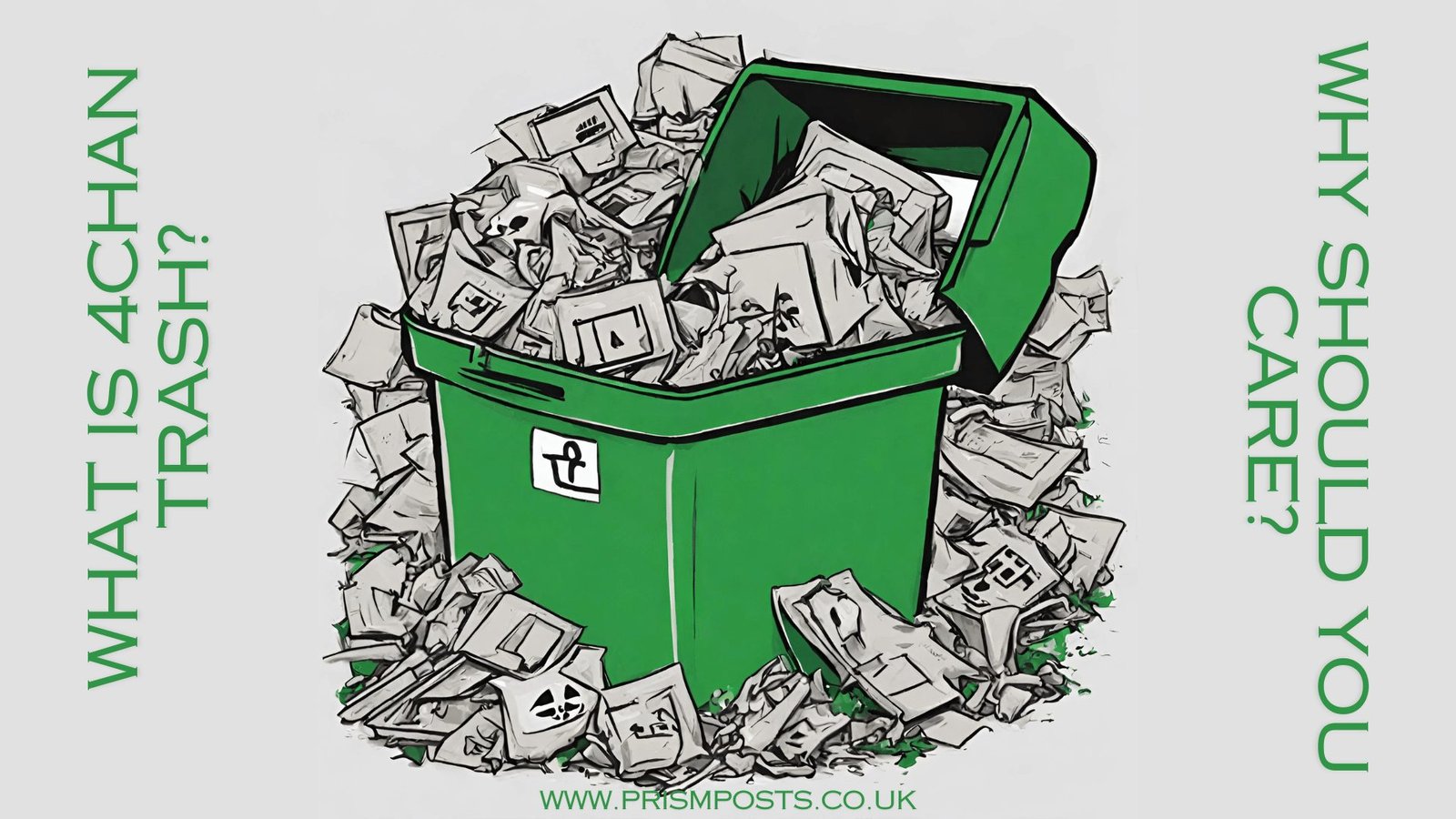If you are an avid internet user, you might have heard of 4chan, an anonymous imageboard where users can post and comment on various topics, ranging from anime and video games to politics and paranormal. You might also have heard of 4chan trash, a term that refers to the content that is deemed low-quality, offensive, or harmful by the site’s standards. But what exactly is 4chan trash, and why is it important to understand this subculture in the context of broader internet culture? In this article, we will explore the origins, characteristics, controversies, and impacts of 4chan trash, as well as the challenges and opportunities of navigating this content.
Understanding 4chan Trash
“4chan trash” refers to content on the site that is often deemed controversial, offensive, or of low quality by both users and outsiders. This content starkly contrasts with the site’s more mainstream discussions, characterized by its provocative nature. Understanding what classifies as “trash” requires exploring the types of content it encompasses, which range from bizarre memes to controversial discussions, and the reasons why such content is either relegated to or emerges in this space.
Historical Background
4chan inception as a simple imageboard has evolved into a complex hub of internet subculture, attracting millions worldwide. The board history is crucial to understanding how “trash” content has shaped its reputation. This section traces 4chan evolution and examines how “trash” has been integral to its identity and the subcultures it has spawned.
Community Dynamics and Culture
The community dynamics within 4chan, especially on its “trash” boards, are unique. Anonymity plays a significant role, influencing how users interact, debate, and bond. This section explores the camaraderie, inside jokes, and shared experiences that define the “trash” community, offering insights into its peculiar culture.
Also Read: How to Make 100$ a Day with Rygar Enterprises
Controversies and Challenges
4chan trash has been at the center of numerous controversies, shaping meme culture, trolling, and various internet phenomena. This section details these controversies and the legal and ethical challenges posed by the content found in “4chan trash” highlighting the board impact on wider internet culture.
Impact on Internet Culture
The influence of 4chan trash extends beyond its community, affecting broader internet culture. From shaping memes to influencing viral trends, this section analyzes 4chan role in digital communication and online communities, underscoring its pervasive impact.
Navigating 4chan Trash
For users and researchers, navigating the “trash” content of 4chan presents unique challenges. This section provides insights into how individuals engage with and study this material, discussing the balance between free expression and offensive content within 4chan ecosystem.
Conclusion
4chan trash embodies a dual nature—a creative outlet for some and a source of controversy for others. This article has explored its complexities, from its origins to its impact on internet culture, offering a comprehensive understanding of one of the web’s most controversial subcultures.
FAQs
How does 4chan anonymity contribute to the prevalence of “trash” content?
The anonymity provided by 4chan is a double-edged sword. It allows users to express themselves freely, without fear of judgment or repercussions in their personal lives. This freedom, however, also paves the way for the proliferation of “trash” content. Without accountability, individuals may feel emboldened to share extreme, controversial, or offensive material, knowing they won’t be personally identified or held responsible. This anonymity fosters a unique environment where users can explore taboo topics or share unconventional content, contributing to the distinctive nature of 4chan “trash” subculture.
What are the specific examples of “trash” content that have had a significant impact outside of 4chan?
The perception of 4chan “trash” subculture varies widely. Within the 4chan community, there are users who celebrate this freedom of expression, viewing it as a bastion of unfiltered creativity and humor. Others, however, criticize it for fostering negativity or toxic behavior. Outside of 4chan, the “trash” content and the community that surrounds it are often viewed with skepticism or concern, particularly by those who are wary of its impact on internet culture and public discourse. The controversial nature of the content means it is frequently the subject of debates about online behavior, freedom of speech, and internet regulation.
How do 4chan users and the broader internet community view the “trash” subculture?
Regarding specific examples of “trash” content impacting the wider internet, there are numerous instances where memes, slang, and digital trends have migrated from 4chan depths to mainstream social media platforms and even into everyday conversations. Some of these have been benign or humorous, while others have sparked significant controversies or been linked to various online or offline movements. However, due to the nature of “trash” content, detailing specific examples can be challenging, as they often involve sensitive or contentious material.

